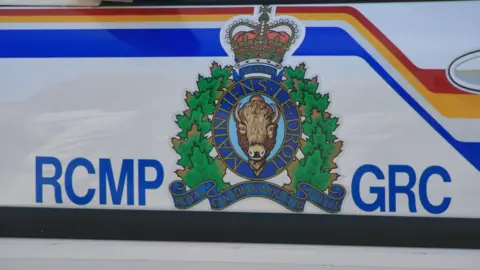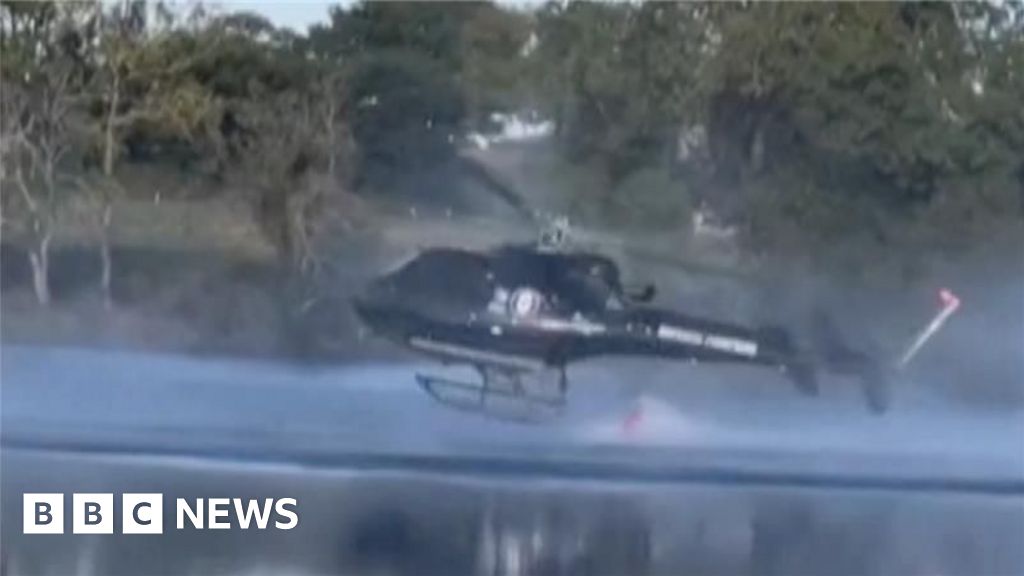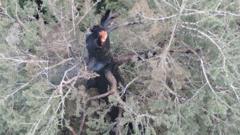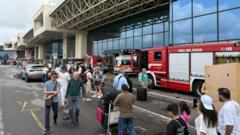In a harrowing turn of events, Manitoba has declared a state of emergency as wildfire incidents soar, with over 100 active blazes reported across the province as of Friday. This year's wildfires have ravaged approximately 2.5 million acres, marking one of the worst seasons since 1994 and raising alarm for local and federal authorities alike.
Provincial officials revealed in a recent news conference that the unprecedented number of ongoing fires puts Manitoba on track for a record-breaking year regarding land damage due to wildfires. Many of the current fires, exacerbated by soaring summer temperatures, have been attributed primarily to lightning strikes, which serve as the leading cause of wildfires across Canada. As a precautionary measure, the capital city, Winnipeg, faced severe thunderstorm warnings as meteorological conditions further complicated firefighting efforts.
As of the latest reports, nine communities, including the town of Snow Lake and Garden Hill First Nation, have been evacuated. Premier Wab Kinew emphasized the necessity for more shelters to accommodate displaced residents, mentioning that over 4,000 evacuees from the Garden Hill reservation are currently being housed in local facilities designed for such emergencies.
Federal aid has arrived, with the Canadian government dispatching military air support to assist in evacuating affected individuals. However, political tensions have surfaced as Kinew criticized U.S. Congressional representatives from Minnesota and Wisconsin for issuing a letter pressuring Canada to mitigate the wildfire crisis due to cross-border smoke impacts. This contentious matter has stirred sentiments of frustration against political opportunism amidst a public health and safety crisis.
Earlier this season, Kinew had already declared another state of emergency in May due to earlier wildfire incidents which tragically resulted in two fatalities and vast evacuations affecting both Manitoba and parts of Saskatchewan. The province continues to grapple with the severe impacts of ongoing wildfires, calling for solidarity and prompt action in the face of a natural disaster.
Provincial officials revealed in a recent news conference that the unprecedented number of ongoing fires puts Manitoba on track for a record-breaking year regarding land damage due to wildfires. Many of the current fires, exacerbated by soaring summer temperatures, have been attributed primarily to lightning strikes, which serve as the leading cause of wildfires across Canada. As a precautionary measure, the capital city, Winnipeg, faced severe thunderstorm warnings as meteorological conditions further complicated firefighting efforts.
As of the latest reports, nine communities, including the town of Snow Lake and Garden Hill First Nation, have been evacuated. Premier Wab Kinew emphasized the necessity for more shelters to accommodate displaced residents, mentioning that over 4,000 evacuees from the Garden Hill reservation are currently being housed in local facilities designed for such emergencies.
Federal aid has arrived, with the Canadian government dispatching military air support to assist in evacuating affected individuals. However, political tensions have surfaced as Kinew criticized U.S. Congressional representatives from Minnesota and Wisconsin for issuing a letter pressuring Canada to mitigate the wildfire crisis due to cross-border smoke impacts. This contentious matter has stirred sentiments of frustration against political opportunism amidst a public health and safety crisis.
Earlier this season, Kinew had already declared another state of emergency in May due to earlier wildfire incidents which tragically resulted in two fatalities and vast evacuations affecting both Manitoba and parts of Saskatchewan. The province continues to grapple with the severe impacts of ongoing wildfires, calling for solidarity and prompt action in the face of a natural disaster.




















